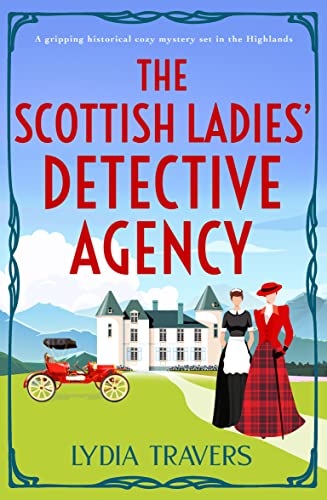The Scottish Ladies’ Detective Agency
Lydia Travers’s title The Scottish Ladies’ Detective Agency echoes that of the best-selling, twenty-five-year series by Alexander McCall Smith, The No. 1 Ladies Detective Agency, whose central character Precious Ramotswe is Botswana’s leading, and only, female private detective. Travers’s novel, first in its series, resides in this cozy mystery subgenre, although it does not mine the depths of McCall Smith’s gentle but profound stories that explore the African land and society, characters and psychology of contemporary life. Instead, The Scottish Ladies’ Detective Agency sets itself up in business in the year 1911 in Edinburgh. Facing the commonplace prejudice against women in business, both detectives, Maud, daughter of a country gentleman, and her former maid, Daisy, are “modern” women stretching their abilities and challenging a changing society on the cusp of WWI. The theme of women’s suffrage threads through the plotline, including a court case in which a suffragette is sentenced to a year in prison.
Maud and Daisy open their agency ready to prove themselves against traditional male assumptions, accepting an important case from a duchess: a stolen necklace at a country estate amid the titled gentry. Traditional stuff, certainly, and this theft is seemingly solved, against the dead body of a viscountess, closing their first big case in one weekend. Three private investigations, a missing dog, missing bride-to-be, and missing love letters, quickly follow, keeping the detectives on their toes. Mysterious and handsome Lord Urquhart provides the romantic frisson, amid interviews, disguises, endless cups of tea, dropped references to famous fictional detectives, including Sherlock Holmes, and features of history folded in for detail. The standard climax brings a car chase, complete with gunshots and the detectives, back to Duddingston House.










